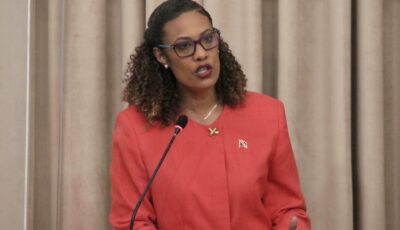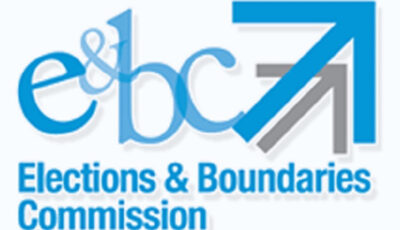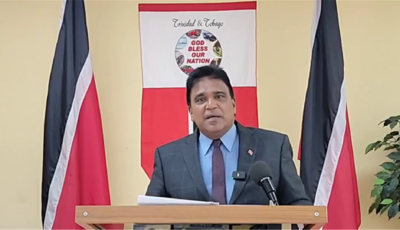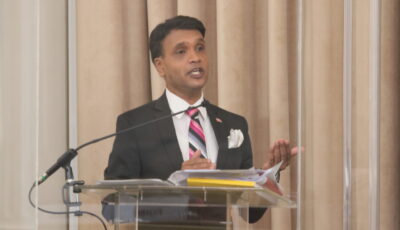AG: Gordon has no sole power
 The Integrity in Public Life Act (IPLA) does not give any power to a single member of the Integrity Commission neither does it give any specific power to the chairman except when the commission is duly constituted.
The Integrity in Public Life Act (IPLA) does not give any power to a single member of the Integrity Commission neither does it give any specific power to the chairman except when the commission is duly constituted.
So said Attorney General Anand Ramlogan yesterday when he spoke with reporters during a break on the debate on the Dog Control Bill 2013 in the Parliament on Integrity Commission chairman Ken Gordon’s statement issued on his meeting at his residence with Opposition Leader Dr Keith Rowley.
Ramlogan said Gordon erred in his interpretation of the powers he assumed he had by quoting parts of Part II, Section 5 (2) (a) and ( c) of the IPLA. Perhaps it might have been more important for Gordon to seek legal advice on his powers, he said, “and perhaps it would have been clarified so that he would not have erred.” Gordon seemed to have lumped the powers given to the commission, Ramlogan said, “with the powers he thinks he has as chairman, but there is a very clear line of demarcation between the Integrity Commission, and (Gordon as) the member of the commission who happens to be the chairman.”
When the commission is duly constituted by the President, he said, the powers given to the commission under the IPLA is vested in the commission and not in any individual member.
“I do not think it was proper for a member of the commission,” he said, “to purport to exercise powers of the non-existent commission, because that is an unlawful usurpation and arrogation unto himself of powers that properly belong to the Integrity Commission.”
The meeting with Rowley, he said, must be viewed against the backdrop that there was no commission, and as a chairman or a member without powers until the commission is duly appointed, there was no point in meeting.
The most worrying thing about the incident, Ramlogan said, is that Gordon has not admitted or seem to recognise that he made an error of judgement or that he made any error at all.
This means, he said, that going forward, Gordon will continue to operate under the misapprehension of what the extent and nature of his powers are. “That is something that is troubling,” he said.
Asked if Gordon should have resigned, Ramlogan said, “that is a matter for his own judgement and his own integrity.”
Noting that Gordon has published the name of the lawyer, Deborah Peake, SC, who gave him advice, Ramlogan queried what was so special that he could not have done so in the first place, when it involves taxpayers’ money and public accountability. The questions, he said, are which commission requested the legal advice, for what purpose, and why was the request made at the particular point in time.
“(Gordon) did not provide any explanation as to why he felt it necessary to disclose the legal advice in a press release, since such legal advice is strict and confidential under the Integrity in Public Life Act,” Ramlogan said. “Why did he seek to publish that legal advice at a time when Dr Rowley’s email fiasco was backfiring and dying a natural death? The timing was highly suspicious and he has provided no explanation.”
If Gordon knew a commission was yet to be appointed, Ramlogan questioned why did he seek advice on behalf of a non-existent commission which could bind the hands of commissioners when they are appointed. Something he said was ethically wrong with that.
In addition, he said Gordon has used the services of lawyers to represent the commission who represent opposition politicians and that is an issue Government has taken issue with in the past.
Having been told that there was urgency for a meeting, Ramlogan said that Gordon should have at least asked Rowley on the phone to give him an idea of the urgency so that he could have been able to determine whether or not he could have met with him the following day.







